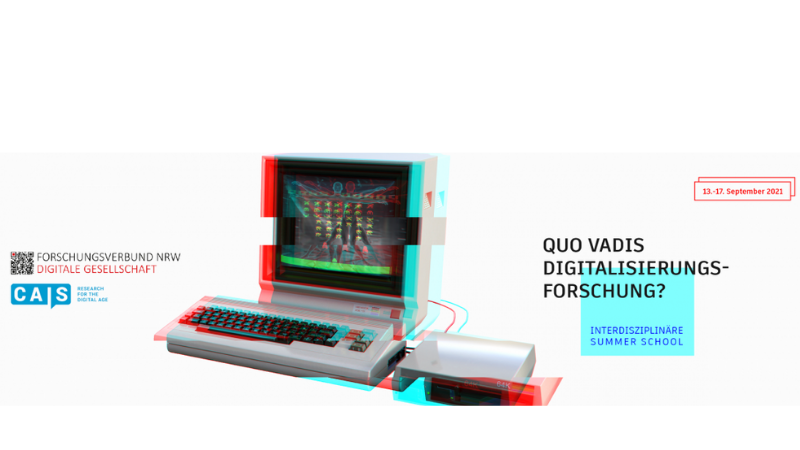Review of the Summer School 2021: Quo vadis Digitalisation Research?
The diverse effects of digital structural change in the social, cultural, political, medical and economic spheres open up great opportunities and perspectives as well as challenges and risks. For example, the increasing relevance of data, the emergence of new digital platforms or the technological developments in artificial intelligence and robotics lead to as yet unresolved questions of data protection, data security, dependence on digital power and control structures or cybercrime. In this context, the digital transformation should not be understood solely as a question of technological development, but always also as social change, at the centre of which are people whose lifeworlds are increasingly influenced by the opportunities and risks of digitalisation.
Against this background, the interdisciplinary Summer School “Quo vadis Digitalisierungsforschung?” addressed the question of how digitalisation research that focuses on people and the social consequences of digitalisation can research, critically accompany and help shape the digital transformation of society at present and in the future. The Summer School was jointly organised by the NRW Digital Society Research Center and the Center for Advanced Internet Studies (CAIS).
For one week, the 19 participating young researchers from all over Germany exchanged ideas with experts on current developments in digitisation research in a hybrid setting (Bonn/Bochum/virtual). This also addressed the question of their own self-image as digitisation researchers. Current scientific issues were communicated and discussed in lectures and workshops. The focus was on the following topics:
1. Self-conception and task of digitisation research
What are the tasks, subject areas, focal points and goals of interdisciplinary digitisation research that focuses on the opportunities and challenges for people and society? What socio-political contribution can or should digitisation research make? What has it already achieved? Which technical and/or societal developments will possibly pose a particular challenge in the coming years?
2. Interdisciplinarity as an opportunity and a challenge
What can the various disciplines of the social sciences, humanities and technology contribute to interdisciplinary digitisation research? In particular, how can the dialogue between the social sciences and humanities on the one hand and the technical sciences on the other be organised? What makes interdisciplinary digitisation research more than the sum of its individual disciplinary parts? What is the relationship – also in terms of science and funding policy – between interdisciplinary digitisation research and other disciplines and research fields such as data science, socioinformatics, computational social sciences, technology assessment or digital humanities?
3. Ethical questions of the digital transformation
What are currently the most pressing ethical issues of the digital transformation? What do approaches such as ELSA/ELSI (Ethical, Legal and Social Aspects/Implications Research), which conduct interdisciplinary research into the social consequences of technologies, achieve? How can ethical challenges be overcome in concrete applications, for example through algorithm ethics in the development and implementation of new types of AI applications?
